Pendragon: Sword of His Father
Reviewed by: Raphael Vera
CONTRIBUTOR
| Moral Rating: | Excellent! |
| Moviemaking Quality: |
|
| Primary Audience: | Teens Family Adults |
| Genre: | Christian Action Adventure |
| Length: | 2 hr. 2 min. |
| Year of Release: | 2009 |
| USA Release: |
April 3, 2009 (film festival) DVD: currently available |
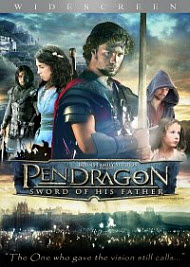

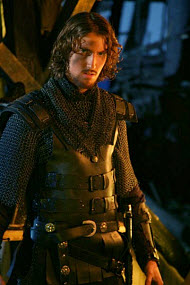

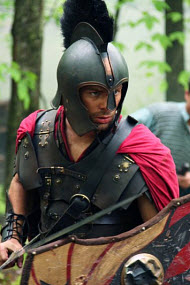
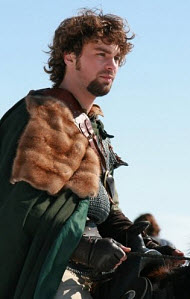
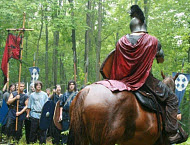
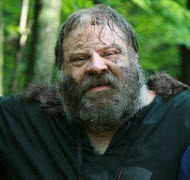

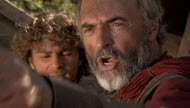

About the ancient Israelite army
What is the Biblical perspective on war?
Ancient Rome in the Bible
OVERCOMING FEAR, ANXIETY AND WORRY— What does the Bible say?
What is faith and why is it very important to God?
What is true Christian love, according to the Bible?
FORGIVEN?—How can I be and feel forgiven?
GUILT—If God forgives me every time I ask, why do I still feel so guilty?
What is a true Biblical Christian?
How can I know what is right or wrong?
Has death always existed? Why does it exist?What is the Final Judgment? and What do you need to know about it?
How can we know there’s a God?
 Discover the good news that Jesus Christ offers
Discover the good news that Jesus Christ offers
| Featuring |
|---|
| Cary Annen, Drew Annen, Nathan Ashton, Aaron Burns, Adrianne Burns, Andrew Burns, Andy Burns, Chad Burns, Marilyn Burns, Nicholas Burns, Raymond Burns, Erik Dewar, Brian Ervin, Wally Patton, Tim Quinlan, Howard Shepherd, Eric Spyres, Rebekah Wixom |
| Director |
|
Chad Burns |
| Producer |
| Burns Family Studios, Filmweavers |
| Distributor |
| Burns Family Studios |
“The One who gave the vision still calls.”
Set in 411AD the Roman legions have departed from Britain and the Saxons begin their invasion.
On the eve of battle, the commander of a village (directly in the path of the marauding Saxons) called Pendragon says to his son Artos, “How do we follow our Master?” The answer Artos gives defines early the hero of the movie: “By following his purpose for our lives each day we glorify him.”
And so begins “Pendragon: Sword of his Father.” Using the weaponry of the day, including catapults with flaming missiles, the Saxons attack, and it becomes swiftly apparent that the village is outmatched. Despite valiant efforts by Pendragon’s forces, the fortress walls are breached, and the village is taken.
Artos, the Pendragon’s son, is barely allowed to mourn the loss of his family and the battle, before he is taken away to serve at the table of the Saxon’s leader Hengest. But the son of Pendragon is not captive for long; he escapes and finds help in the form of a mysterious wanderer who, sharing his faith, reminds Artos that our Savior “…was born under oppression, beaten, mocked, killed for you. That was the price for your freedom.”
This mysterious character can be considered an example of deus ex machina, but, as this is a Christian film, one might wonder if he represents something more. As Hebrews 13:2 suggests, “…some people have entertained angels without knowing it.”
Artos joins forces with King Ambrosius, as a minor commander, but his insight and battle prowess make of him a name, and soon the displaced villagers throughout the land rally to the cause and many to his growing cohort.
Second in command, under the king, is Cadeyrn. Both prideful and jealous, he will not accept the growing popularity of the son of Pendragon and will use his influence to drive a wedge between Artos and the King, if not his daughter, Weneveria.
Offensive Content
The only real concern of parents with young children should be the violence. The violence is moderate, as can be expected for a film with medieval battle scenes. While neither blood nor gore is depicted, arrows and axes can be seen hitting their mark, which makes this inappropriate for younger children, as do the death’s of loved one’s, in this fashion. There is an instance of death by fire, and one of torture, that are both similarly non-graphic.
There is a scene where a Saxon, having been captured, is whipped. The film, however, takes this opportunity to turn the situation around by showing Artos put a stop to the beating and then tend to his wounds. This exemplifies the lesson the Bible teaches, in that “Shouldn’t you have had mercy on your fellow servant just as I had on you?” (Matthew 18:33).
Q & A
It turns out that the Saxon prisoner was the same one who had beaten Artos when he had been taken prisoner.
When the Saxon realizes this, he looks up and asks, “Why?”
In perhaps the most poignant scene from the movie Artos says,
“I once wronged a man. My deeds caused him to be beaten, whipped and mocked, yet he gave all he had to rescue me. He died in my place. How can I do anything less?”
What greater witness could he have given to our Lord’s own sacrifice than to tend to the wounds of one who wronged him and explain to him the reason why.
“For God so loved the world that he gave his one and only son, that whoever believes in him shall not perish but have eternal life.” —John 3:16
Pros and Cons
Visually the cinematography is on occasion breathtaking. The costuming is similarly impressive. No half measures were done with regard to these.
The acting, for the most part, is acceptable, considering this is an independent Christian film with no professional actors. Aaron Burns (Artos) did a fair job in the principal role of the film, while Nicholas Burns (Cadeyrn) played his role exceptionally well, as the main adversary and villain. Some roles, including that of the King’s daughter Weneveria (Marilyn Burns) are, unfortunately, at times, unbearable.
The film’s pacing varied greatly, from intense during battle sequences to occasionally ponderous while the viewer is left waiting for the next element to move the plot along. The editing was at times overdone and at other times sorely missed. The film could have used some judicious cutting to trim the film to a more palatable length.
The character of Artos was, thankfully, not the anti-hero (full of faults) that Hollywood has been serving the public for decades now. Artos was a man of vision, with a faith that he wore along with his armor into battle. As he said at the beginning of one skirmish, “Oh Lord, teach our hands to make war.”
The film also takes this chapter from history in which to address the occasional need for war. People have always wished for peace, but men driven by greed, or desirous simply for power, have made many wars inevitable, as did the Saxon pirates of that era. Ecclesiastes chapter 3 opens with the “seasons” of life’s activities and that there is time for everything including “a time for war and a time for peace” (Eccl. 3:8).
“Pendragon: Sword of His Father” is one of the few action adventures made for the family. It is a good, though flawed, independent production, but the positive lessons it espouses through the faith of its characters are commendable. A welcome entry for the Christian audience it targets, it may disappoint viewers used to high budget mainstream films.
Violence: Moderate / Profanity: None / Sex/Nudity: None
See list of Relevant Issues—questions-and-answers.


Moral rating: Good / Moviemaking quality: 2½
The lead lady played by Marilyn Burns also handled costume design, catering, and film score just to name a few of her responsibilities. I also saw her name under prop construction, set construction, costume stitcher and more. She isn’t the only one to wear so many hats. Just about everyone’s name shows up in half a dozen places in the credits.
Many of the actor’s performances left a lot to be desired, but my experience has been that an actor fails to perform because the director failed to pull it out of him. Good acting is a team effort dependent on the skills of the director as much as the actor. That being said, the film’s biggest shortcomings (acting aside) are with it’s directing and it’s script. This seems to be the common Achilles' heel of Christian indies.
This film, surprisingly, had fewer stinted and overstated lines than did “Fireproof” but was by no means free of them. It did however seriously lack sufficient “light moments” and humor to balance it’s serious tenor. The script writer failed to understand how to touch the emotions of his audience. Laughter is one step away from crying and if you can get your audience to laugh one moment, then the tears will flow more freely the next moment when you lower the hammer on them. In this way, even a serious “tear jerker” can benefit from some well place humor. It also makes the two hours pass more quickly.
Other details that would have put this movie in the “Hollywood” level of quality if given more attention include: better ADR (voiceovers), more aggressive color grading for a more consistent and “otherworldly” image, fewer medium and medium close ups and more use of close ups and extreme closeups for more emotional impact, and dialog mixed more to the front of the score for better intelligibility (this was only occasionally problematic and even some “Hollywood” movies suffer this ailment).
Speaking of the score, it was very professional and effective in the film but had no memorable theme music. It could have come from any library of theatrical music beds had it not fit with the scenes as well as it did. Still, impressive for being done “in-house”.
The message of the movie is a good one and was obvious enough that I think even a casual viewer wouldn’t miss it. While the movie communicated it’s morals intellectually, it failed to do so emotionally (for me at least). It failed to be the “spiritual pep talk” I think it was intended to be, another shortcoming of it’s directing and script writing.
Like most movies, this movie had some cultural anachronisms. An anachronism is an article or element that belongs to another time or place. An example of a cultural anachronism would be a WWII movie with American ladies fighting alongside men in the foxholes of France. This would happen in today’s US army but not in 1944. A less obvious example from the Pendragon would be the cultural significance of alcoholic beverages. It is implied by Cadeyrn that drinking would make Artos a man. Artos ultimately refuses any drinks suggesting that he doesn’t think one has to drink to be a man. This imposes the current American culture on that of ancient Britain. In a day that water was considered contaminated and dangerous, alcoholic drinks were one of the only sources of safe liquids. (beer in some cultures, wine in others). Everyone drank alcoholic beverages from the time they were weaned till they died. It would not have been considered particularly manly to have a drink and Christians did not have the objections to it that is there today.
I don’t want to sound as if I’m all down on this film. I think that it’s great what this family did. I wish more Christians like them would do the same. Wouldn’t it be cool if it became a fad with Christians? Hollywood would finally have some healthy counterweight. They have proved that a film can be made that meets the stiff demands of today’s film-spoiled society without it’s producers having to be born with mouthfuls of golden spoons. I hope that they can do more like it, with each successive film being better the last.
Moral rating: Good / Moviemaking quality: 3
We need to support producers like this so that they have more funding and resources to keep coming out with more quality films that will only get better and better. Their other film “Beyond the Mask” was extraordinary. …Let’s have a more positive outlook on those producing films that are noble and a good quality and cheer them on to bigger and better projects.
Moral rating: Excellent! / Moviemaking quality: 4
Moral rating: Excellent! / Moviemaking quality: 3

 About swords in the Bible
About swords in the Bible
It does more than give you a hero to root for or a nice story to relax with. It makes you consider your choices and the things you are living for. What you might do if confronted with the choices Artos was confronted with and, more importantly, what Christ would have you do. I highly recommend it!!
My Ratings: Moral rating: Excellent! / Moviemaking quality: 3½